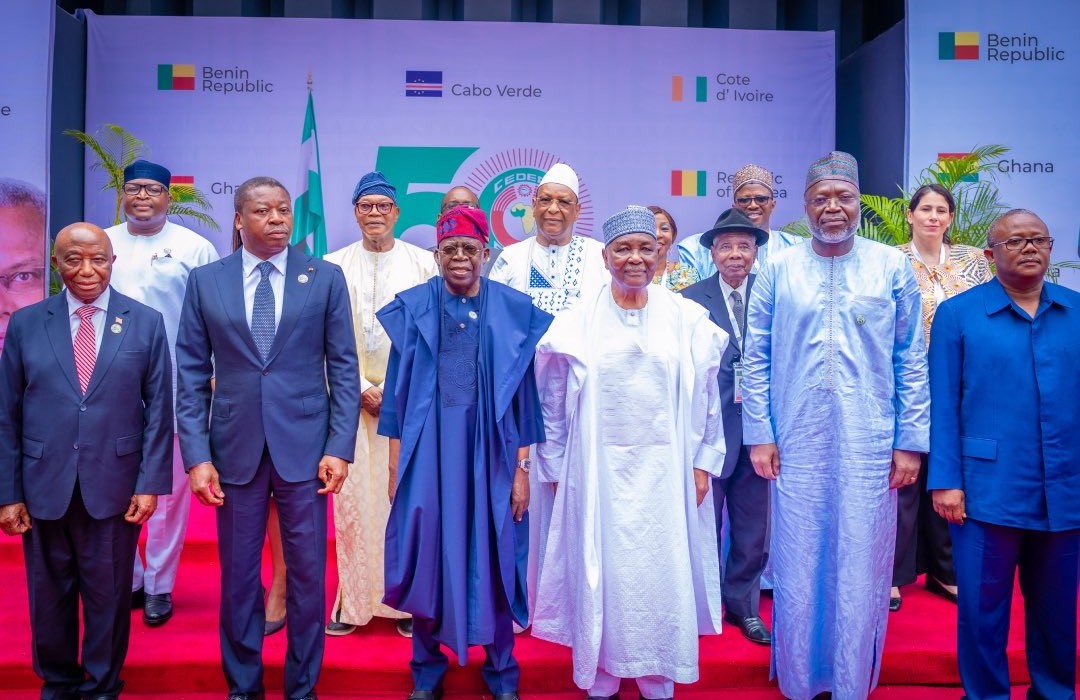
In a parting call laden with symbolism and urgency, Nigerian President Bola Ahmed Tinubu on Sunday appealed to the leaders of Mali, Burkina Faso, and Niger to rejoin the Economic Community of West African States (ECOWAS), as the bloc marked its 50th anniversary during the 67th Ordinary Summit in Abuja.
Speaking in his final address as rotating ECOWAS Chair before handing over to Sierra Leonean President Julius Maada Bio, Tinubu acknowledged the region’s deepening rifts and rising security threats but struck a conciliatory tone aimed at rebuilding unity.
“Under my presidency, I have deployed all diplomatic means to engage with our brothers in Burkina Faso, Mali, and Niger.
I am confident that they will return to the family.
Our doors remain open to them for unity, solidarity, and a shared vision of the future,” he said.
The three Sahel nations exited ECOWAS in January 2025, forming the Alliance of Sahel States (AES) amid sharp disagreements over democratic transitions and security cooperation.
Their withdrawal marked the most serious fracture in the bloc’s history since its creation in 1975.
Tinubu’s appeal comes amid growing signs of tentative rapprochement.
On May 22, foreign ministers from ECOWAS and the AES bloc convened in Bamako for exploratory talks addressing political, security, and economic frameworks.
Senegal and Ghana have intensified their mediation roles, with former Ghanaian President John Dramani Mahama leading initiatives and Senegal dispatching envoys to Ouagadougou and Niamey.
The Abuja summit, marking ECOWAS’s golden jubilee, tackled pressing challenges including terrorism, democratic governance, economic recovery, and institutional reform.
Tinubu also voiced frustration over the slow operationalization of the long-awaited ECOWAS Standby Force.
“I leave this role with a sense of accomplishment and optimism for the future of West Africa,” Tinubu said, passing the leadership mantle to Maada Bio, who is expected to continue efforts at regional dialogue and institutional strengthening.
As ECOWAS navigates internal fractures and external pressures, Tinubu’s appeal for reunification may shape the bloc’s trajectory in the coming years.
Whether the Sahel states heed the call remains uncertain—but the door, as Tinubu affirmed, remains open.



